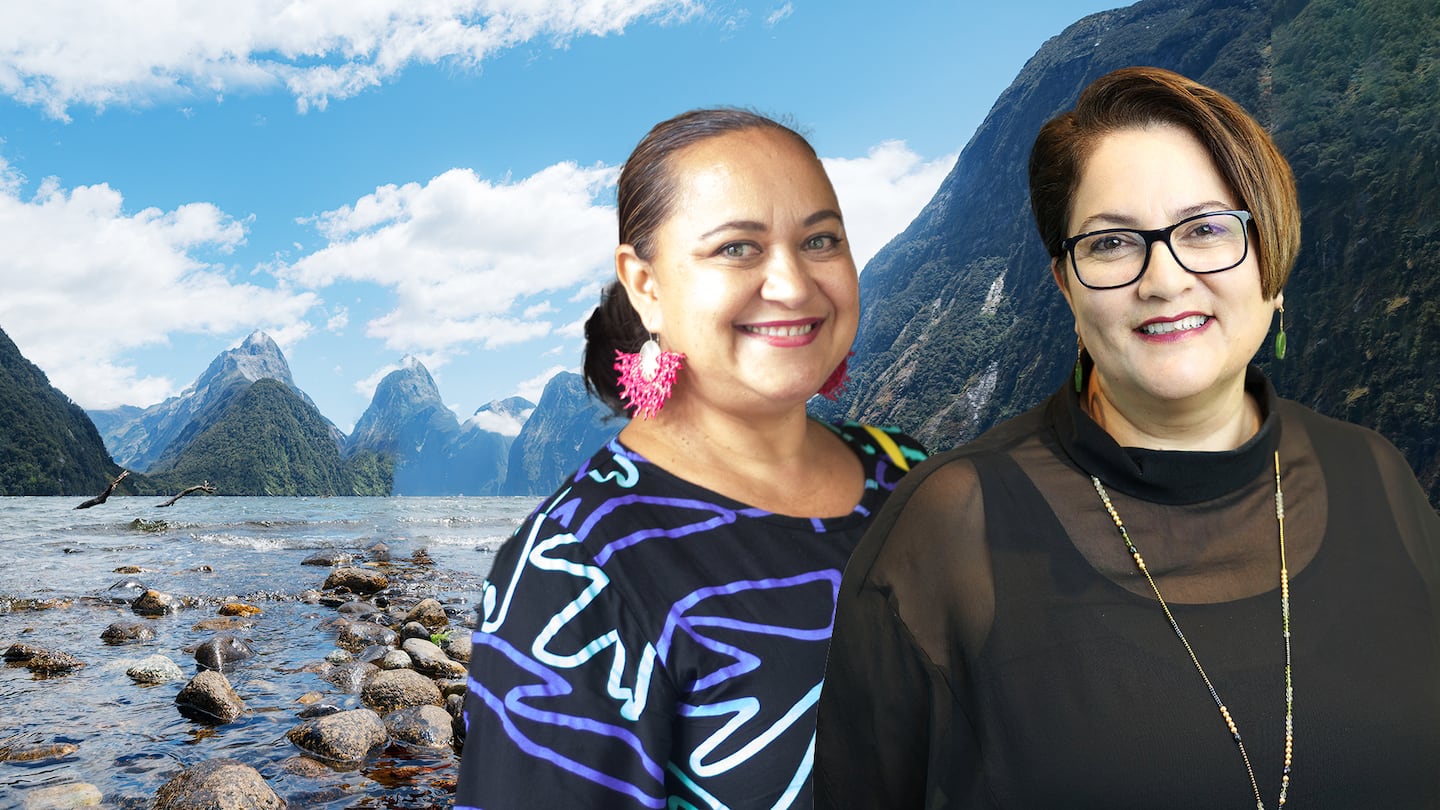Māori and Pasifika leaders are leading climate adaptation, guided by ancestral knowledge and Indigenous principles to build resilience and shape global solutions.
Last week, they played a key role in launching a new Indigenous climate adaptation network at a wānanga ahead of Adaptation Futures 2025, held from 13 to 16 October in Ōtautahi.
The network aims to build a global movement grounded in Indigenous knowledge, centred on decolonising systems and financial mechanisms, and ensuring Indigenous peoples have direct access to climate finance, the funding that supports actions to address and adapt to climate change.

The wānanga was led by Lisa Tumahai (Ngāi Tahu), New Zealand patron for Adaptation Futures 2025 and deputy chair of the NZ Climate Commission, and Tagaloa Cooper (Ngāti Hine, Ngāpuhi, Niue), Director of the Climate Change Resilience Program at the Secretariat of the Pacific Regional Environment Programme (SPREP) in Apia, Samoa.
“The Indigenous Forum came from what we learnt at the previous two adaptation conferences. The recommendations from Indigenous peoples were to step it up a bit at this conference and create an intentional day and space for Indigenous voices,” Tumahai explained.
“For the first time, people are really seeing the commonalities we share with other Indigenous populations, whether they’re from Canada, Africa, or the Amazon.”

Kotahitanga across Te Moana-nui-a-Kiwa
Cooper said many of the Pasifika in attendance felt “at home” in Aotearoa and welcomed the opportunity to have a major conference hosted in the region, as international events are often inaccessible due to high costs.
“I’d like to have more of these types of conversations with our cousins in New Zealand where we can exchange knowledge, learn from each other, and also be innovative about how we do adapt,” she said.
She added that, in speaking with Pacific participants, there was a strong call for deeper engagement with iwi across Aotearoa, particularly in rural communities facing similar challenges to small island nations, to create more opportunities for sharing and exchanging traditional knowledge.
The value of Indigenous knowledge
Cooper emphasised that Indigenous peoples hold a vast body of knowledge that has long been marginalised.
“Science now is telling us what we’ve always known as Indigenous people,” Cooper expressed.
“We must remember our ancestors navigated the vast oceans to get here and then grew nations in very difficult places. There is a lot to learn from our people because we have adapted to live in new lands and we’re still here.”
As Indigenous Observer for the World Bank’s Climate Investment Funds, lawyer Taumata Toki (Ngāti Rehua) said this is a growing area that deserves attention, given the value Indigenous peoples bring and how their knowledge can strengthen climate adaptation projects.

He said he is continually inspired by Indigenous leaders around the world who are not only experts in Western knowledge systems but also grounded in Indigenous principles that are transforming how climate change is addressed.
Toki says the guiding aim of tikanga is balance, a core concept that aligns with many other Indigenous worldviews and shapes how they approach climate change and sustainability.
Barriers to climate finance
Indigenous peoples globally have often had limited access to UN climate change negotiation spaces.
Tumahai said barriers include accreditation requirements or registered body status to access climate finance.
Cooper added that smaller nations and small administrations often lack the capacity, time, and personnel to develop complex project proposals, causing delays and frustration in the flow of funds.

When asked whether Māori face additional barriers to accessing climate adaptation funding as Indigenous peoples within a developed nation, Toki said that, on a global scale, Māori are at the forefront of sovereignty over what development looks like.
However, he acknowledged that when this is set against the wider context of what’s happening in Aotearoa, “it doesn’t look the best,” pointing to the ongoing challenges Māori face at home despite their strong global standing.
Māori-led adaptation and succession planning
“When it comes to Māori-led adaptation, it needs to start in our court,” he explained. “We need to have our own really thought-out discussion in terms of how we develop these projects to be both tikanga-aligned, but also wider Indigenous peoples’ principles aligned.”

Once internal cohesion across iwi is established, state support will play an important role. Despite the challenges, Toki said the potential ahead is immense, both economically and environmentally, and Aotearoa has the opportunity to be world-leading in this space.
Tumahai agreed that the work has to start at home, and her passion, which she has long championed, is succession planning to bring rangatahi into the work.
“And with that succession planning, it’s not to be dismissive of the pakeke or kaumatua who are really that korowai and the knowledge holders. We have our own systems that ensure the conversations are held and led where the knowledge is sitting,” she said.




